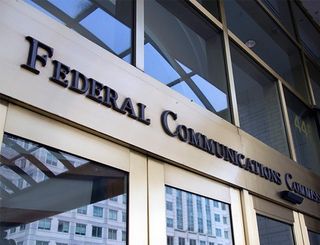Wireless Companies Won't Bid Up TV Spectrum

Stage three of the forward portion of the FCC's spectrum auction began and ended Monday when forward auction bidders again refused to up their prices for reclaimed broadcast spectrum. In fact, the total after stage three was lower—$19,676,240,520—because the FCC reduced the amount of spectrum and the bidders simply reduced their demand along with it. That means the FCC will lower its spectrum-clearing target and proceed to stage four of the reverse auction.
The FCC said that stage four of the reverse auction will likely start Dec. 13. It will provide details on Dec. 9, including what the new clearing target will be.
Stage three of the reverse auction ended last week with the broadcasters' new asking price now $40,313,164,425 for 108 MHz of spectrum (the "clearing target"). In stage two, the price was $55 billion for 114 MHz, but forward auction bidders, who had only ponied up $22 billion in stage one toward an opening price of $86 billion for 126 MHz, did not budge, simply reducing their demand rather than up the price.
Related: FCC Takes Aim at Verizon's 'FreeBee' Data
They did the same Monday, signaling broadcasters will have to drop their prices yet again, and wireless companies will get access to even less spectrum, in stage four.
The FCC has nine different spectrum targets. Stage three of the reverse auction launched Nov. 1 at a 108 MHz clearing target. The next target is 84 MHz, which some see as the potential equilibrium point between broadcasters' asks and forward bidders' offers, perhaps around a $30 billion number.
The lower the clearing target goes without wireless bidders covering the reverse figure, the more broadcasters question wireless bidder cries of a spectrum crunch necessitating the auction in the first place. "The results of the latest round of the TV auction leave us scratching our heads given the decade-long refrain of a spectrum crunch," said National Association of Broadcasters President Gordon Smith. "We look forward to the next round."
Broadcasting & Cable Newsletter
The smarter way to stay on top of broadcasting and cable industry. Sign up below
Related: NAB Seeks Quadrennial Ownership 'Relief' From FCC
Preston Padden, executive director of the disbanded Expanding Opportunities For Broadcasters Coalition, was not too sanguine about the auction's prospects, though he was not ready to even call it by its given name.
"This is not an auction; It is a joke and an abuse of the broadcasters, the FCC and the public who will be put through a disruptive repacking process that increasingly looks unjustified," Padden said.
His anger was directed toward the wireless carriers clamoring, ostensibly, for the spectrum.
Related: Tech Groups Offer VP-Elect Pence FCC, FTC Job Descriptions
"The question is why the carriers lobbied so hard for a statute to authorize an auction of spectrum they don't want. The carriers now have twice walked away from blocks of spectrum they told Congress was 'vital' and for which they predicted bidding as high as $58 Billion."
Investors Business Daily was reporting that AT&T was likely to win the contract for FirstNet, the interoperable first responder network, which would give it access to 20 MHz of low-band spectrum, which could make it less likely to bid aggressively for the low-band spectrum in the incentive auction.
Before an earlier auction covered the cost of FirstNet, part of the proceeds from the broadcaster spectrum auction would have had to go to pay that multi-billion price tag.
Related: ACA to FCC—Deny Nexstar-Media General Waiver
The auction was designed for multiple rounds since it is bidders on both sides, not the FCC, that is determining the price point at which the spectrum is more valuable to wireless bidders for broadband than broadcasters for over-the-air service.
With the FCC decreasing the number of channels being reclaimed from broadcasters, that leaves more room to repack stations, including the low powers and translators that could be knocked off their channels--according to the FCC's thinking--if there was not enough room.
The LPTV Spectrum Rights Coalition, which advocates for low powers, signaled they had dodged a bullet and would now have hundreds more channels they could move to without being displaced in the post-auction repack musical chairs. "An additional 4 channels in 210 markets or 840 more channel openings!," the group enthused in an e-mail to members following news that the FCC would be lowering its spectrum target sites.
Contributing editor John Eggerton has been an editor and/or writer on media regulation, legislation and policy for over four decades, including covering the FCC, FTC, Congress, the major media trade associations, and the federal courts. In addition to Multichannel News and Broadcasting + Cable, his work has appeared in Radio World, TV Technology, TV Fax, This Week in Consumer Electronics, Variety and the Encyclopedia Britannica.

